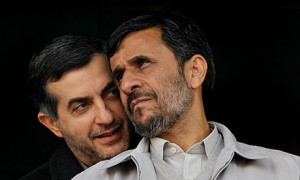 The United States has denied visas to about 20 Iranian government officials hoping to attend next week’s United Nations General Assembly, including two ministers, Iran’s Fars news agency reported on Saturday.
The United States has denied visas to about 20 Iranian government officials hoping to attend next week’s United Nations General Assembly, including two ministers, Iran’s Fars news agency reported on Saturday.
Iranian President Mahmoud Ahmadinejad, a regular at the assembly since he took office in 2005, will give his final speech there on Wednesday and will address a meeting on the “rule of law” on Monday.
But of the 160-or-so visas requested by the Iranian delegation two months ago, about 20 were turned down, Fars said.
It gave no reason, but many Iranian officials are subject to travel bans under sanctions related to Iran’s nuclear programme.
In Washington, the U.S. State Department had no immediate comment on the matter.
Fars did not name the two ministers who were denied visas and said Ahmadinejad would be accompanied by his chief of staff Esfandiar Rahim Mashaie and Foreign Minister Ali Akbar Salehi.
Fars named two of those banned from going to New York as members of Ahmadinejad’s staff: Mohammad Shaikhan, in charge of communications and information, and Mohammad Jafar Behdad, in charge of political affairs.
A U.S. official who spoke on condition of anonymity said: “Visas for foreign officials to attend UN meetings in the UN headquarters district are adjudicated in accordance with all applicable laws and procedures including both U.S. law and the UN Headquarters Agreement, however, visa records are confidential.”
As U.N. host country, the United States has a policy of issuing visas for members of delegations, in line with a 1947 pact with the United Nations, regardless of disputes with individual countries.
However, it does sometimes refuse entry to government officials and professionals from Iran with which it has had no diplomatic ties since 1979 and which it accuses of seeking nuclear weapons, a charge Tehran denies.
In 2009, as Iranian authorities were crushing protests against Ahmadinejad’s re-election, Iran said a delegation headed by its first vice president had been refused visas to attend a U.N. conference on the global financial crisis.
Ahmadinejad, whose second and final term in office ends next year, has used previous U.N. speeches to defend a nuclear programme he insists is peaceful and to make verbal attacks on Israel, the United States and Europe.
He has questioned the historical truth of the Holocaust and cast doubt on whether Islamist hijackers were really responsible for the attacks of September 11, 2001.
Most Western envoys walk out of the U.N. chamber during his speeches, in protest.
Reuters
Photo: Iran’s president, Mahmoud Ahmadinejad, consults his chief-of-staff, Esfandiar Rahim Mashaei

Leave a Reply
You must be logged in to post a comment.